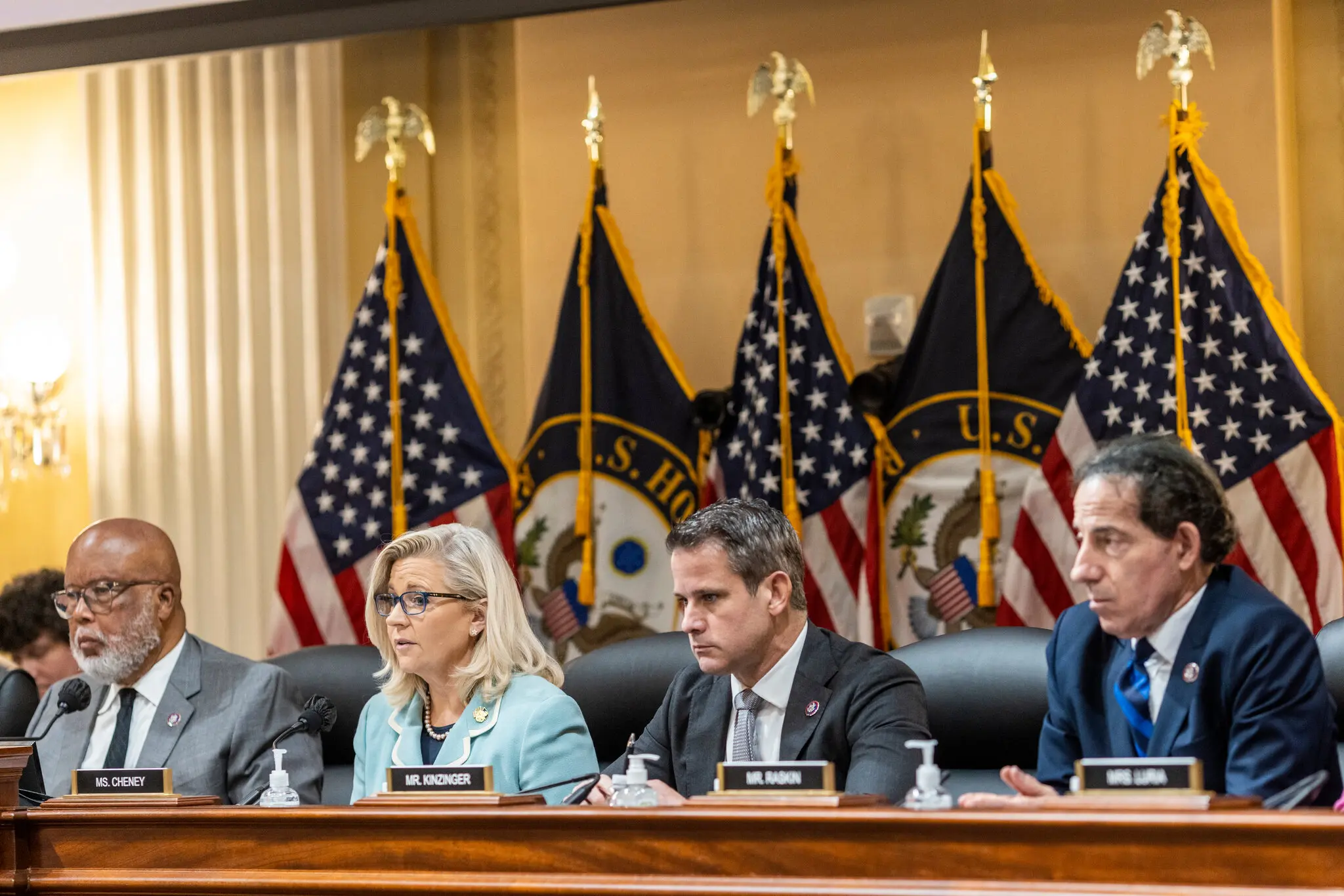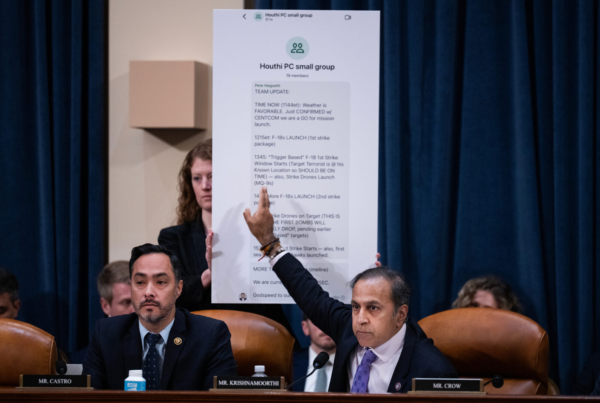By Ella Macallair
22 December, 2022, saw the release of the long-awaited final report from the House Select Committee’s investigation of the United States Capitol attack. On 6 January, 2021, a mob of far-right Trump supporters attacked the Capitol building in Washington, D.C., seeking to keep former American President Donald Trump in power by halting the counting by Congress of the electoral votes needed to confirm the victory of current President Joe Biden. The 845-page report concerns the first instance of domestic terrorism against a government building since the Civil War ended in 1865 and consists of a compilation of evidence gathered from emails, texts, phone records, and over 1,000 interviews with politicians, White House staffers, and Trump’s lawyers and other confidants.
The committee recommends that the Justice Department charge Donald Trump with at least four criminal charges: obstructing the official proceedings of the U.S. government, conspiring to defraud the U.S., making false statements to the federal government, and inciting or engaging in an insurrection. This is the first time in history that a congressional party has recommended criminal charges against a former president. The investigation confirms suspicions regarding Trump’s involvement in the attempted coup and shines a light on the stark problems facing the American democratic system.
Trump’s Complicity
Trump’s pressuring of state officials to overturn the 2020 election results and his rallying of far-right supporters and conspiracy groups to march to the Capitol building were some of the criminal actions that the report details. While his urging supporters to “fight like hell” to the Capitol at a rally held on the morning of January 6 was already known, the report contains statements from several Trump advisors that make clear that Trump himself had intended to join the crowd. More significantly, the report reveals that Trump’s incitement of the January 6 insurrection was part of a multifaceted scheme masterminded long before the day of the actual insurrection.
Between the November 2020 election and January 6, Trump propagated the notion of a “rigged election,” despite his having clear evidence that Biden had legally won the election. The report reveals a 302-page transcript of an interview with General Mark Milley of Trump’s Joint Chiefs of Staff. The transcript recounts a meeting with Trump a few weeks after Election Day during which the former president acknowledged that he would not again be sworn in. This indicates that Trump understood that he had not been elected and reveals that he deliberately disseminated lies to mislead the public regarding the validity of the election results.
The report also points to at least 200 instances of Trump publicly or privately pressuring elected officials to tamper with, recount, or overturn votes. In one instance, he called on Republican Representative Rusty Bowers of Arizona to hold a vote to decertify the election results. These attempts of the former president are apparent in 68 meetings, phone calls, and text messages to state and local officials in battleground states, as well as in 125 social media posts targeting said officials.
The Select Committee also identified Trump’s lawyer Rudolph Giuliani and lawyers Kenneth Chesebro and John Eastman as having devised a fake electors scheme to overturn the 2020 election results by using legal memoranda. The scheme included a detailed plan of how former Vice President Mike Pence could have strategically forgone counting electors by dismissing votes that were unfavorable to Trump as invalid in Congress’s joint session on January 6.
These attempts by Trump’s personal lawyers to undermine electoral results – which could constitute acts of conspiracy to obstruct Congress and defraud the US government – occurred after initial efforts by Trump’s campaign lawyer to find evidence backing voter fraud allegations in Georgia. The lawyer later told the panel that this investigation had come up empty. As a further indication of the unlawful schemes of the Trump administration, transcripts cited in the report demonstrate interviewees’ practice of systematically invoking their Fifth Amendment right to avoid any risk of self-incrimination.
Flaws in the American Democratic System
In addition to corroborating Trump’s involvement in the January 6 coup, the investigative panel’s report highlights certain flaws of the American democratic system, including of the US Electoral College.
Composed of a group of electors (the number of which is equal to the state’s congressional delegation) from each of the 50 states and tasked with certifying the election of the president, it has long been criticized as the centerpiece of a “winner-take-all” system. The chief objection made against this system is that it sometimes results in a candidate winning the election even when that candidate loses the popular vote.
The report also reveals another lesser-known structural problem: the Electoral College’s lack of a uniform voting method across states and its reliance on elected officials abiding by the spirit of the law and established traditions. This issue comes to the fore in the report’s detailing of the tactics used in Trump and his lawyers’ fake electors scheme to delegitimize the electoral process and the election’s results.
Of course, the insurrection ultimately failed and the election results were eventually certified. But this ceremonial certification of the election by Vice President Pence only occurred after he had made numerous inquiries as to whether he had any legal authority to alter the election results – fortunately, he received and accepted sound legal advice that he had no authority to do so. The utter chaos that would have ensued had Pence decided to follow Trump’s lead and refused to certify the election results underscores the deficiencies of America’s electoral process.
The January 6 committee calls on Congress to address the shortcomings of the outdated Electoral Count Act of 1887 which governs the counting of electoral votes in Congress and leaves the kind of interpretative ambiguity that made it possible for Trump and his acolytes to delegitimize and attempt to overturn election results.
After almost two years of negotiations, Congress passed an Electoral Count Act 2022 which explicitly states that the Vice President’s role in certifying the election results is purely ceremonial and does not confer any authority to change the votes. The new act also clarifies the process by which states identify and count the number of their electors and their electoral votes, and repeals the provision of an 1845 law that could enable state legislatures to override the popular vote by declaring a “failed election” – a legally unidentified term.
The concrete effects of the Electoral Count Act in modernizing and improving the Electoral College, as recommended by the report, has yet to be proven. Additionally, Congress is currently reviewing the Presidential Improvement Act to ensure peaceful transfers of power in the future, by providing clearer guidelines as to when presidential candidates may benefit from federal resources to support their transitions into office.
The Implications of the Report
The January 6 panel’s investigation led Committee members to recommend barring Trump from holding office again. If Congress responds to these recommendations by indicting Trump or passing other relevant legislation, the former president’s 2024 presidential campaign for a non-consecutive second term would be buried.
The revelations of this report are extensive and go beyond a mere corroboration of Trump’s crimes. They lay bare some serious flaws in the American system of democracy, its deficient election process, and its complacent reliance on tradition that, left unchecked by Congress, could very well have resulted in a successful coup.
Other posts that may interest you:
Discover more from The Sundial Press
Subscribe to get the latest posts sent to your email.





